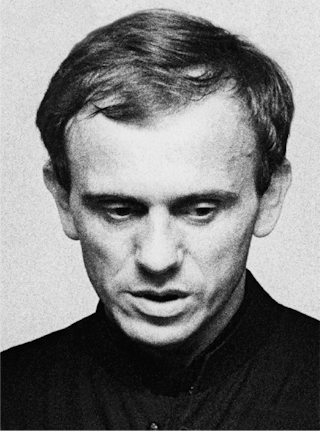
Father Jerzy Popieluszko
Father Jerzy Popieluszko’s introduction to the priesthood was counterintuitive. He spent several years in the a Polish special forces unit commissioned specifically to deter young Polish men from entering the priesthood, part of the larger tension in Communist Poland between the open expression of religion and Communism’s animosity towards organized faith.
Unlike many others, Popieluszko was so affected by his proximity to religion that he entered formal seminary training in Warsaw in the late 1970s before serving parishes throughout Warsaw as a respected vicar of the Roman Catholic faith. In 1981, Father Popieluszko visited the Warsaw Steelworks at the height of the famous worker’s strike, absorbing the ideology of common workers and trade unionists organized in opposition to Polish Communism.
Popieluszko remained a powerful voice of anti-Communism throughout his life, often preaching about the intersection of moral duty and political activism in sermons sharply critical of the Polish Communist government and the political violence visited on communities by the notorious Polish Security Service. Between 1981 and 1983, when Poland underwent a series of authoritarian steps into martial law, Popieluszko and the Polish Catholic Church remained the only voices with the legitimacy and network to effectively challenge the political decisions of the Polish government.
Popieluszko’s message grew thanks to distribution by Radio Free Europe, and multiple attempts were made by the Polish Security Service to intimidate or silence Popieluszko’s popular weekly sermons. After several unsuccessful attempts to jail Popieuszko on fabricated evidence between 1982 and 1983, Popieluszko was murdered in an organized attack by three agents of the Polish Security Service. These men were later arrested and convicted for Popieluszko’s murder.
In 2010, Pope Benedict XVI authorized he beatification of Popieluszko, and is recognized as a martyr within the Roman Catholic Church. His legacy of human rights advocacy from the pulpit continues to inform Poland’s democracy, and his message inspired a new generation of anti-Communist advocates to find strength in the message of faith as an effective organizing tool against state oppression.